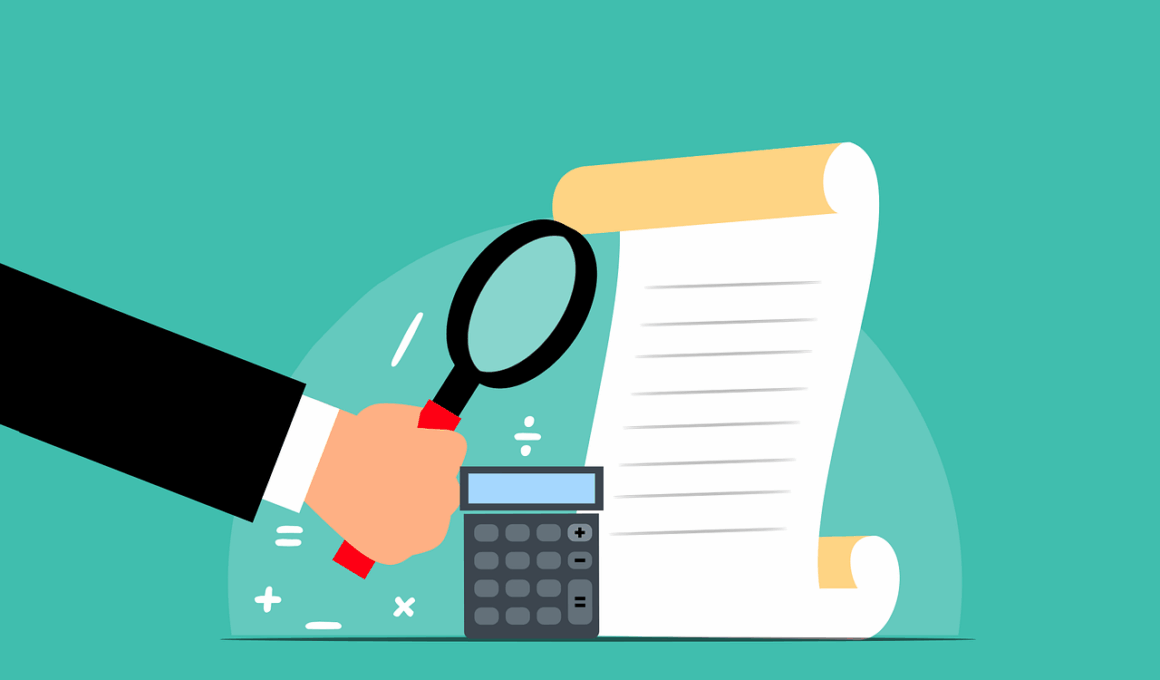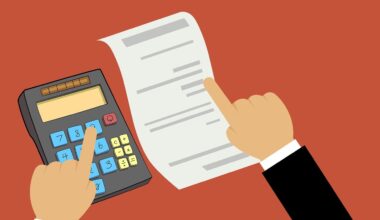The Relationship Between Data Privacy and Financial Auditing
In today’s digital world, the connection between data privacy and financial auditing has become increasingly vital. Organizations now face immense pressure to uphold data protection standards while ensuring thorough financial oversight. Financial auditing not only verifies the accuracy of financial statements but also examines internal controls, including how they safeguard sensitive information. Auditors must adapt to evolving data privacy regulations, such as the GDPR and CCPA, which impose strict guidelines on the collection and processing of personal information. As a result, auditors must ensure compliance with these laws to protect clients and themselves. The dual responsibility to maintain both accurate financial reporting and robust data privacy practices presents significant challenges. Moreover, failure to comply with data protection regulations can lead to hefty fines and legal consequences, thus impacting the organization’s financial health. To fully grasp the implications of data privacy on auditing, organizations must commit to investing in auditor training and updating technological capabilities, blending these two distinct but interconnected realms into a cohesive strategy that satisfies the expectations of stakeholders and regulators alike.
As organizations become more dependent on technology for financial reporting, data security issues have surged. Sensitive information, including personally identifiable information (PII), must be protected during audits to ensure confidentiality. Auditors now play a crucial part in evaluating how data privacy measures impact audit processes. Assessing the handling of data throughout its life cycle is imperative for auditors in establishing that financial reports are credible and compliant with legal standards. This process often involves examining data access restrictions, encryption practices, and protocols for data retention and disposal. Firms must ensure that data privacy is a key consideration during audits, reflecting broader trends in business practices where data protection initiatives directly influence corporate governance and risk management strategies. Furthermore, effective collaboration between legal, compliance, and financial departments is essential in implementing best practices for data privacy. By fostering strong communication channels, organizations can better align their auditing processes with data protection goals, ultimately enhancing both accountability and trust with stakeholders. The synergistic interplay of auditing and data privacy creates a robust foundation for sound financial practices.
The Role of Technology in Enhancing Data Privacy
Leveraging technology can significantly improve the integration of data privacy within financial auditing practices. Advanced tools and software streamline audit processes, automatically documenting data flows and access rights, thereby promoting transparency and accountability. Automation plays a pivotal role in collecting and analyzing vast amounts of data efficiently while ensuring compliance with privacy regulations. These techniques reduce human error and enhance the accuracy of audit outcomes, which is paramount for maintaining stakeholder confidence. Moreover, innovations such as artificial intelligence (AI) and machine learning can help auditors identify trends and anomalies that may indicate potential risks to data privacy. By utilizing AI algorithms, firms can monitor systems in real time and flag unusual activities that might compromise sensitive information. This proactive approach enables organizations to address vulnerabilities before they escalate into serious breaches. Additionally, technology facilitates secure communication channels between auditors and clients, allowing sensitive information to be exchanged securely. As audit professionals embrace technological advancements, the synergy between data privacy and auditing continues to strengthen, ensuring a more secure financial landscape for businesses across industries.
Regulatory frameworks governing data privacy have become a central aspect of auditing practices. Auditors must stay informed of changes in legislation to effectively evaluate how organizations comply with data protection laws. Understanding these regulations allows auditors to provide insightful recommendations for improving data governance. Organizations must also facilitate training to ensure that key stakeholders comprehend their responsibilities regarding data handling and protection. Enhanced knowledge of data privacy regulations can lead to enhanced audit outcomes, protecting both the organization and customer interests. Moreover, during audits, professionals should inquire about management’s commitment to implementing privacy policies within corporate governance practices. A strong governance framework ensures a consistent approach toward maintaining data privacy standards while executing financial audits. By fostering a culture of data responsibility, companies can enhance their credibility in the market and build lasting trust with their clients and stakeholders. Furthermore, embracing technology that aligns with regulatory requirements improves overall compliance and efficiency during audits. Organizations must prioritize proactive measures to not only meet but exceed these legal obligations, solidifying their dedication to data privacy in all aspects of operations.
Challenges in Merging Auditing with Data Privacy
The convergence of auditing and data privacy presents several challenges that organizations must navigate. One significant obstacle is the inherent complexity of data privacy regulations, which can vary by jurisdiction. Auditors may struggle to keep up with constantly evolving legal landscapes given differing expectations across regions. Understanding how these diverse requirements impact auditing practices requires comprehensive training and continuous professional development. Additionally, finding the balance between thorough audits and respect for data privacy often becomes a contentious point. Auditors must strike a delicate equilibrium that respects individual privacy rights while ensuring compliance with financial rules and regulations. Furthermore, resistance from employees regarding increased scrutiny of personal data practices may hinder an organization’s efforts to improve its data privacy measures. Education and awareness campaigns can help facilitate a cultural shift towards embracing data protection as an organizational priority. Finally, the reliance on third-party services and technology can complicate compliance efforts, as organizations must ensure that these partners adhere to the same data privacy commitments. By identifying these challenges, firms can develop strategies that bridge the gap between auditing and data privacy effectively.
Training and upskilling auditors in matters related to data privacy is essential for effective integration between these domains. Comprehensive training programs should encompass various aspects of data protection regulations, industry best practices, and emerging trends. Auditors not only need to understand auditing techniques but also must be equipped to recognize how insufficient data privacy measures can lead to significant risks and compliance issues. Ongoing education enables auditors to evolve with the changing landscape of data privacy, ensuring that best practices are consistently applied throughout the audit process. This training should also extend to employees involved in preparing financial statements, as their understanding of data privacy is integral to safeguarding sensitive information. Investing in training empowers auditors to identify potential breaches and report them appropriately. Additionally, organizations need to foster a collaborative environment where auditors work closely with compliance and IT teams to gain insights into data privacy challenges. Such collaborations enhance audit quality while contributing to a culture of accountability regarding data protection. Ultimately, enhancing practitioners’ skills regarding data privacy plays a crucial role in reinforcing financial audit integrity.
Conclusion: The Future of Auditing and Data Privacy
Looking ahead, the relationship between data privacy and financial auditing is expected to evolve further. Emerging technologies and increasing data regulations will continue to reshape auditing practices, compelling organizations to adapt consistently. The growing reliance on interconnected systems and digital transactions will demand that financial auditors remain vigilant about potential data breaches. Organizations should also establish robust incident response plans for effectively addressing any data privacy violations that may emerge. Furthermore, as consumer awareness regarding data privacy heightens, organizations must prioritize transparent communication regarding their data handling practices. This shift necessitates a commitment to proactive measures in auditing processes while safeguarding personal information. In this dynamic environment, auditors must stay proactive in leveraging technology, maintaining compliance, and providing distilled insights to management and stakeholders. Embracing the intricacies of data privacy not only enhances audit credibility but also strengthens overall organizational resilience. By nurturing this relationship, companies can foster comprehensive risk management strategies and build sustainable practices that create long-term value. As the lines between auditing and data privacy blur, the future undoubtedly hinges upon maintaining the delicate balance between financial accountability and data protection.
Through building a strong framework that encompasses best practices in both data privacy and financial auditing, organizations can thrive in their respective industries. This framework not only helps ensure compliance but also builds trust among clients and partners. As regulatory scrutiny intensifies, the intersection of these areas will necessitate ongoing discussion and refinement. Regular dialogue between financial and compliance teams is vital for fostering a culture of accountability. Additionally, board oversight can drive commitment to data privacy initiatives, further integrating them into the organization’s core operations. With management’s leadership, organizations can establish data privacy as a key facet of their overall strategy. The interaction of auditing practices with emerging technology will also play a significant role in shaping the future of this relationship. Investment in cybersecurity measures will remain paramount as organizations confront the growing threat landscape. Auditors must approach their work with comprehensive entries regarding sensitive information, ensuring that not only financial processes are efficient but also that data privacy is a top priority. By aligning approaches with regulatory changes and innovations, organizations can transform data privacy from a challenge into a strategic advantage.


